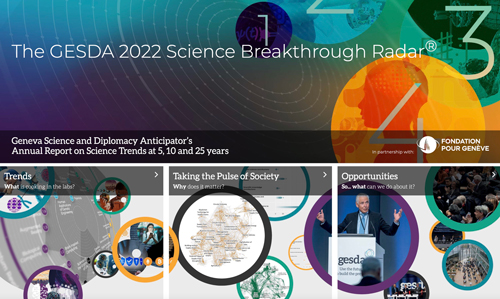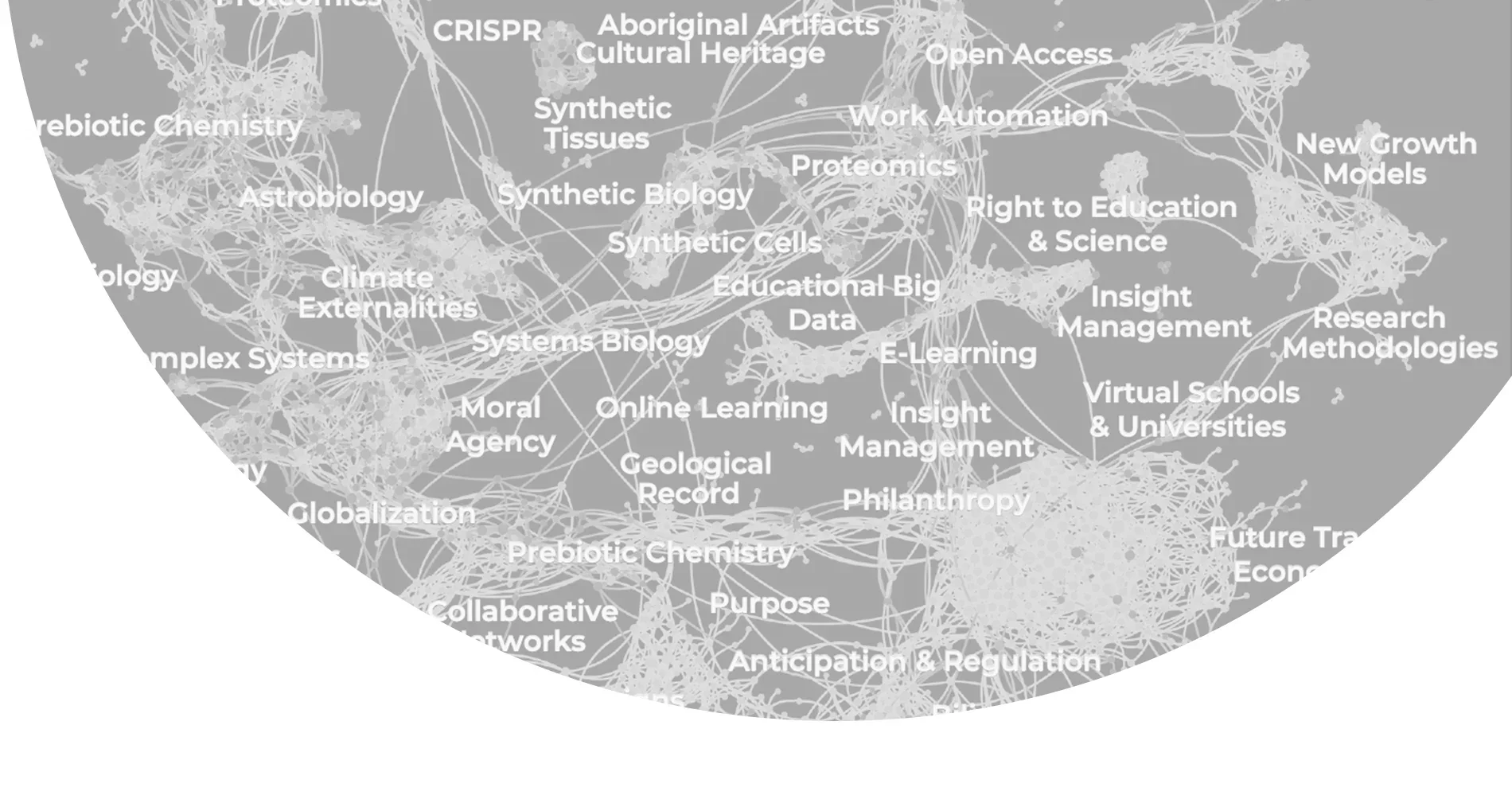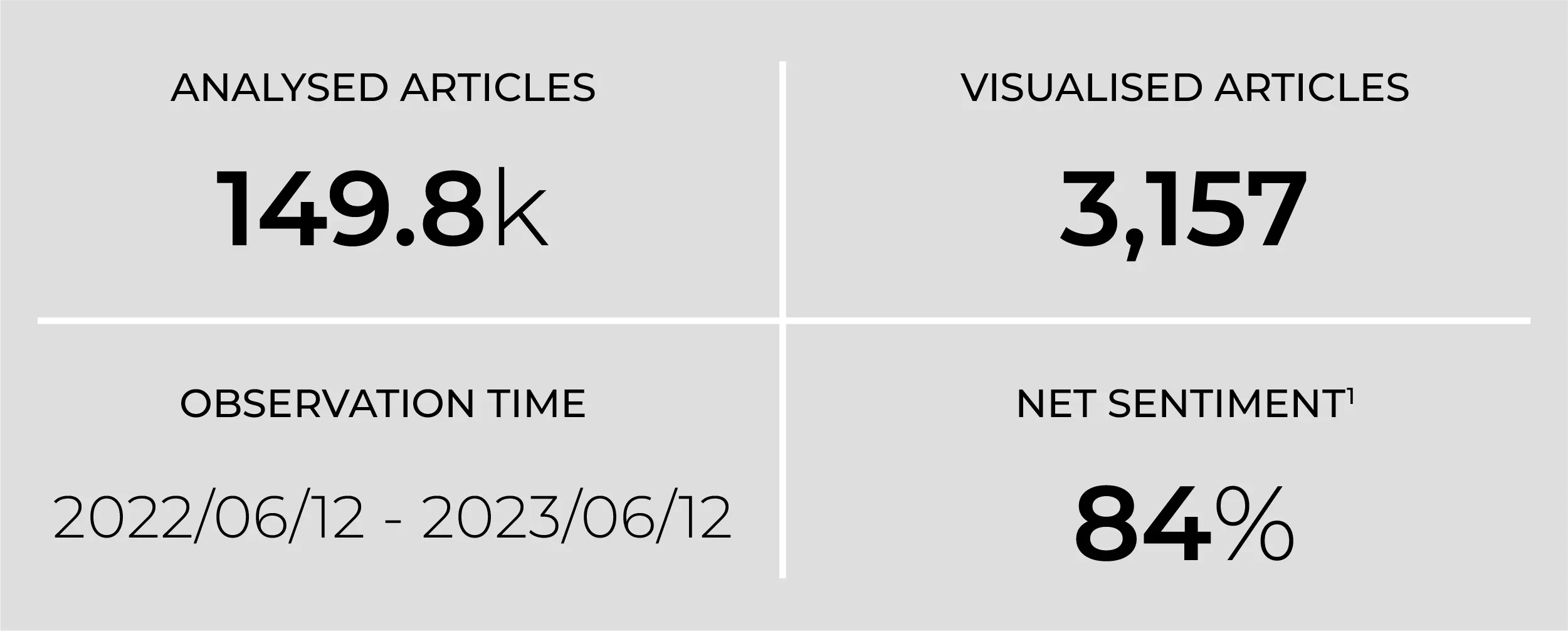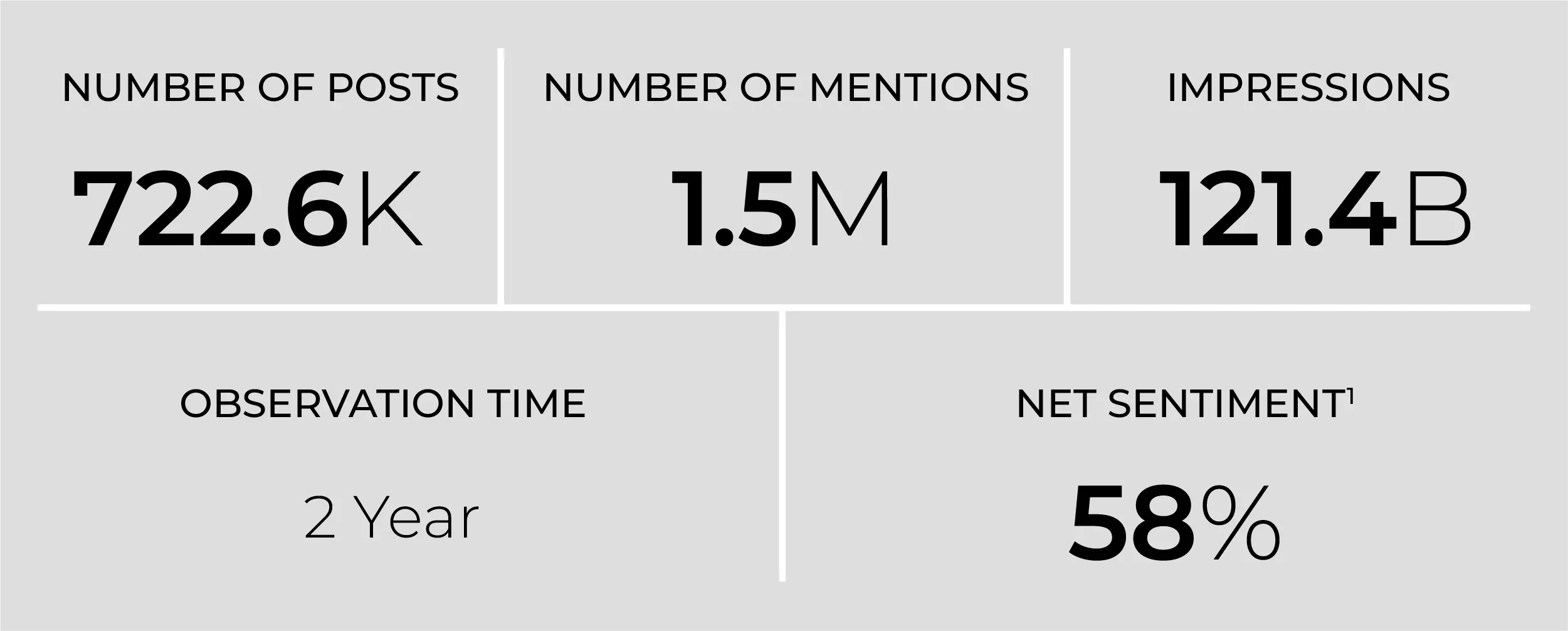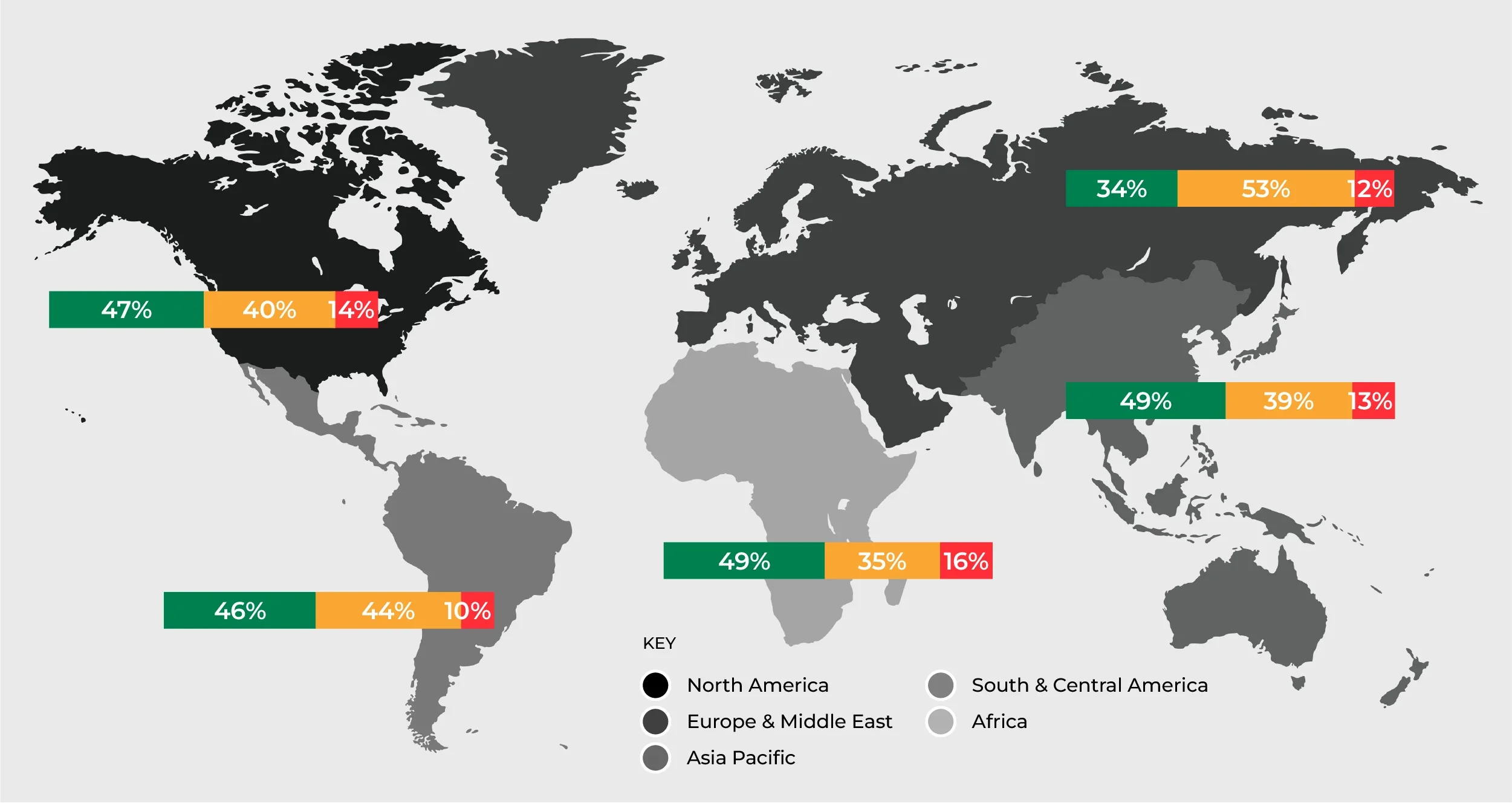Mainstream media
In the last year, an analysis of 150,000 articles spanning various platforms revealed an 84 per cent net positive sentiment in the discourse on knowledge foundations, touching upon a broad array of topics from Complex Systems Science to the Future of the Scientific Method.Social media
Over a 2-year period, 722K unique social media posts from platforms such as Twitter, YouTube, and various other text-based channels were analysed. These covered an extensive range of themes, from Complex Systems Science and Digital Democracy to Synthetic Biology and the Future of Peace and War, culminating in an overall net positive sentiment of 58 per cent.Social media: emerging hot topics and discussions
Balancing the role of technology in education
The role of technology in education has sparked vibrant debates on social media about whether it enhances learning or compromises the interpersonal skills and community ethos in traditional classrooms. Social media dialogues emphasise how technology can pave the way for inclusive, personalised education. Yet discussions also caution against excessive reliance, which could risk overshadowing the benefits of traditional classrooms. With numerous opinions and shared experiences, the challenge underscored in these online debates is about finding the right balance where technology can augment learning without compromising the social interactions and sense of community inherent in a traditional classroom setting.
Innovation embedded in ethics
On social media platforms, there are many discussions focused on balancing innovation stimulation with ensured ethical conduct in science and technology. Often highlighted is the desire for a holistic approach to tackle ethical dilemmas in the tech industry, integrating ethical principles into the innovation framework itself.
Synthetic and extra-terrestrial life
Advances in synthetic biology, particularly the use of the CRISPR/Cas9 genome editing tool, have been picked up and amplified across social media, with a focus on the potential of synthetic biomolecules across sectors. The revolution in producing synthetic biomolecules, spurred by improved synthesis processes and strategies focusing on global knowledge access, is generating discussion about a sustainable and efficient future. Recent efforts to search for extra-terrestrial biosignatures and simulate life’s origins have also been a hot topic of future-centric debates on social media platforms.
Sustainable economic practices
Public discourse is increasingly focusing on the pivot from extractive to regenerative economic models, including the future sustainability and fairness of global economies. The exploration of indigenous practices to foster an understanding of sustainable, reciprocal relationships with natural systems, and integration of these practices into future policies and initiatives, is discussed.
The digital divide and distribution of power
The struggle towards achieving digital accessibility, thus surmounting the deep-rooted digital divide, is stirring debates on social media. Ongoing digitisation's potential to democratise or concentrate wealth and power features prominently in social media discussions. The digital divide between the connected and unconnected, despite enhanced global connectivity and digital skills, has ignited debates. Social media dialogues emphasise that while digitalisation can create sustainable, innovative economies, it risks exacerbating existing inequalities if not distributed equitably.
Technology in peace and war
The role of technology in securing peace or creating new ways to wage war is a recurring topic of discussion in online platforms. The debate hinges on whether technology can act as a catalyst for peacebuilding, or whether it merely presents new mechanisms to instigate conflict. On the optimistic side, social media discussions highlight how digital tools can foster connectedness, empathy, transparency, and accountability, all critical to maintaining peace. However, the opposing view underscores how these same tools can be exploited to wage cyber warfare, spread disinformation, and disrupt societies. A prevailing theme in these discussions is the need to achieve a balance, using technology to promote peace while addressing the potential risks it can pose to global security.
Sentiment towards Knowledge Foundations across the world
- 90 per cent of discourse relating to the Knowledge Foundations in African nations takes place in Ghana, Kenya, Nigeria, South Africa, Namibia, and Botswana. The influential sentiments involved in these discussions showcase a mix of extreme positivity and negativity, implying strong feelings regarding these subjects.
- Within Europe and the Middle East, countries like Montenegro, Estonia, and Ireland see the most discussion per capita concerning knowledge foundations. Conversations generally display a neutral sentiment.
- In South America, the majority of social media discussions (75 per cent) can be attributed to Colombia, Brazil, and Mexico.
- Within the APAC region, India is the leading contributor to dialogue regarding knowledge foundations, with a particular focus on discussions about technological advancements.
- North America contributes the most to global English language discussions about knowledge foundations.
How is sentiment changing?
Mainstream media coverage has increased moderately In 2022, 124,500 media articles were published relating to topics within Knowledge Foundations, increasing to 149,100 articles by 2023. Out-of-school learning, neuroscientific aspects of learning, prebiotic chemistry and the geological record have shown the greatest increase in media popularity during this time, whilst mentions of synthetic biomolecules have decreased the most.
Social media reveals changing sentiments and demographic engagement Across the spectrum of topics classified under Knowledge Foundations, the overall social media sentiment leans towards positivity, averaging at 58 per cent. The majority of analysed posts revolve around Scientific Methods, Archaeology, and the Future of Education, which have increased in popularity over the past two years, reflecting growing public engagement and interest.
Emerging Topics
Associated Topics
Future of Archaeology
Resonsible Anticipation